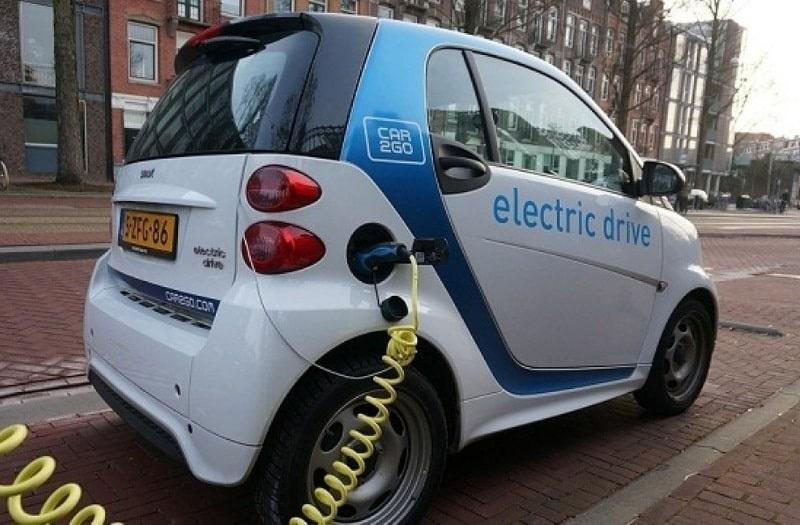The Skeleton In The Electric Car Closet
Authored by Onar Am via Liberty Nation,
The number of electric vehicles is increasing rapidly, but at great human cost.

You probably have not heard anything other than praise for electric cars like those made by Tesla (TSLA) in the mainstream media. They are sexy and environmentally friendly too, we are told. The first may be true, but not the latter.
Batteries are not good for the environment, and their raw materials are mined at the expense of human health.
Rare Earth Metals
Rare earth metals are needed to make efficient batteries. The minerals are found in low densities in the earth’s crust, and tons of rock need to be mined, filtered, and transported in order to find the amount required to make a vehicle battery. Typically, the energy needed to create them exceeds the amount that they store during their lifetime. That is why they are so expensive.
Congo
Cobalt is one of the ingredients needed to make batteries. In 2018, 70% of this mineral came from the Democratic Republic of Congo in Central Africa. The metal is mined by poor Congolese people who work under conditions that would have been unthinkable and highly illegal in any Western country. Accidents are common, sometimes killing the miners.

Mining for cobalt in the Congo.
Little attention is given to those who toil to make wealthy Western environmentalists happy. It is not uncommon for green ideals to be at odds with human health. DDT is a miracle chemical that was used to eradicate malaria in America and Europe, but environmentalists were able to de facto ban it in the 1970s, resulting in tens of millions of unnecessary deaths in developing nations.
Similarly, Norman Borlaug initiated what is known as the green revolution in farming. His work earned him a Nobel Peace Prize in 1970, and he became known as “the man who saved a billion lives.” Everyone loved him, except radical environmentalists. They successfully managed to prevent him from applying his farming techniques in Africa, which resulted in the needless suffering and deaths of millions of Africans.
It should, therefore, come as no surprise that environmentalists have little concern for the lives of miners in Congo.
Hybrids
The rational alternative to electric vehicles, which is both good for the environment and for human health and prosperity, is the chargeable hybrid. An average car owner drives less than 50 miles per day, but electric vehicles strive to give you a range of 300 miles or more per charge. This means that they will be equipped with batteries that are six times larger than is needed for daily usage. Thus, six times more rare earth metals must be mined at a greater human, environmental, and economic cost than is necessary.
The chargeable hybrid solves this problem by having a much smaller battery, but also a small gasoline engine that kicks in on the rare occasions when you need to drive longer.
When you are driving in the city, you will mostly be in electrical mode, thereby not contributing significantly to noise and pollutants from the gasoline. Thus, you are environmentally friendly where it is most needed – in densely populated areas.
When the battery is small, no special high-power charger is needed. Instead, you can just plug the car into an ordinary socket and charge it overnight. In short, you get all the benefits of having an electric vehicle, but none of its downsides.
So why are hybrids not more popular? They are not “pure” enough for environmentalists. They hate fossil fuels and don’t want to sully their green souls. For that reason, hybrids are not the focus of research and development that they deserve. That’s a shame because they genuinely have the potential to be a competitive alternative to the ordinary gasoline car – without nearly as many skeletons in the closet.




Sully their green souls. Ha. Isn't that the truth!
All progress has a cost.
Sure, it has always been that way, but promises of automated driving along with ill fated attempts show us that it really is just a fancy assistance for a necessary driver behind the wheel.